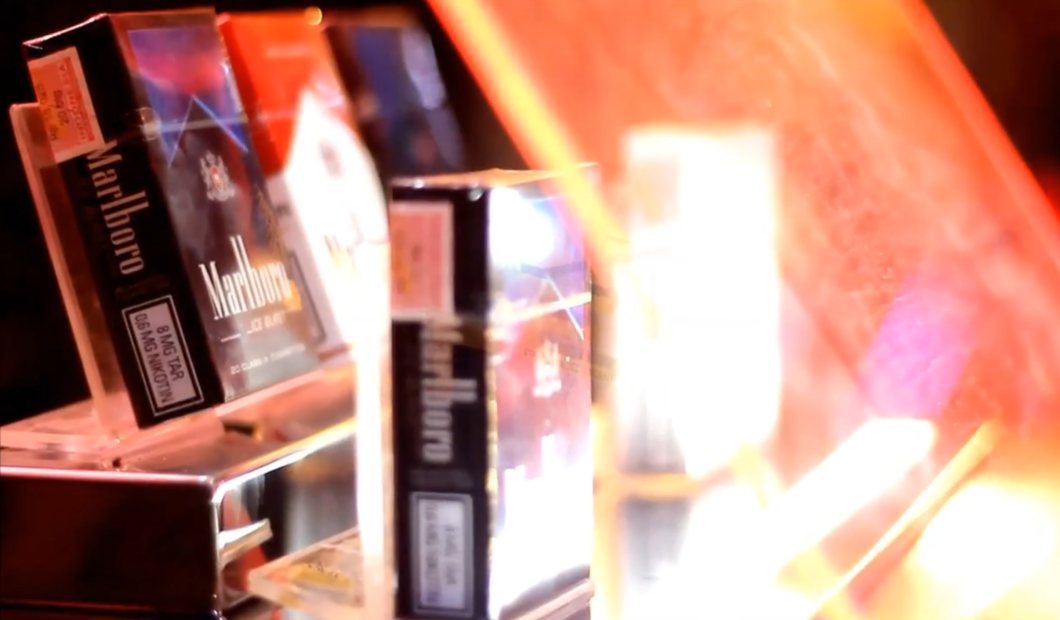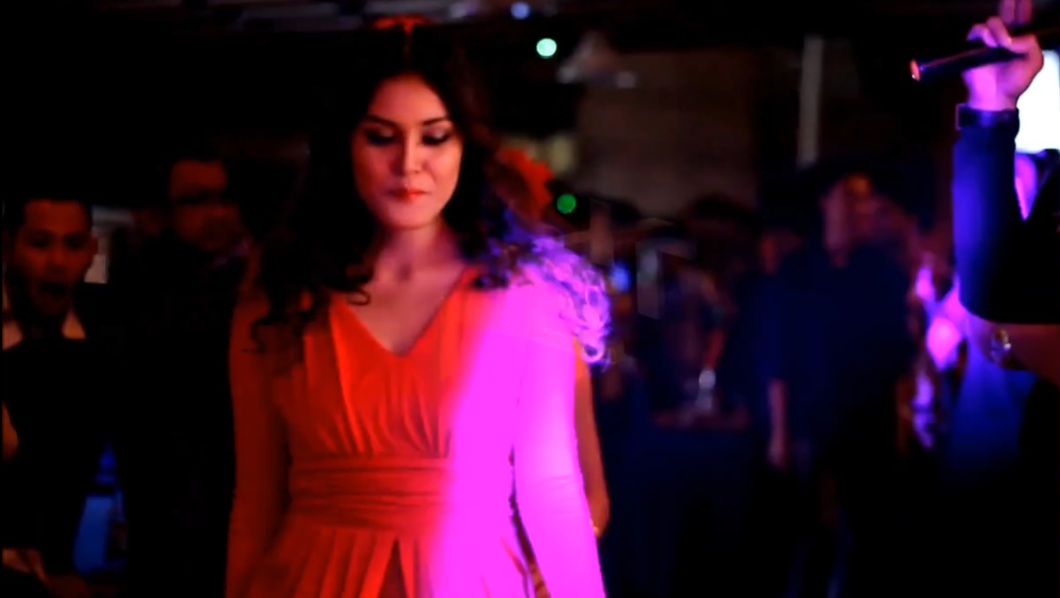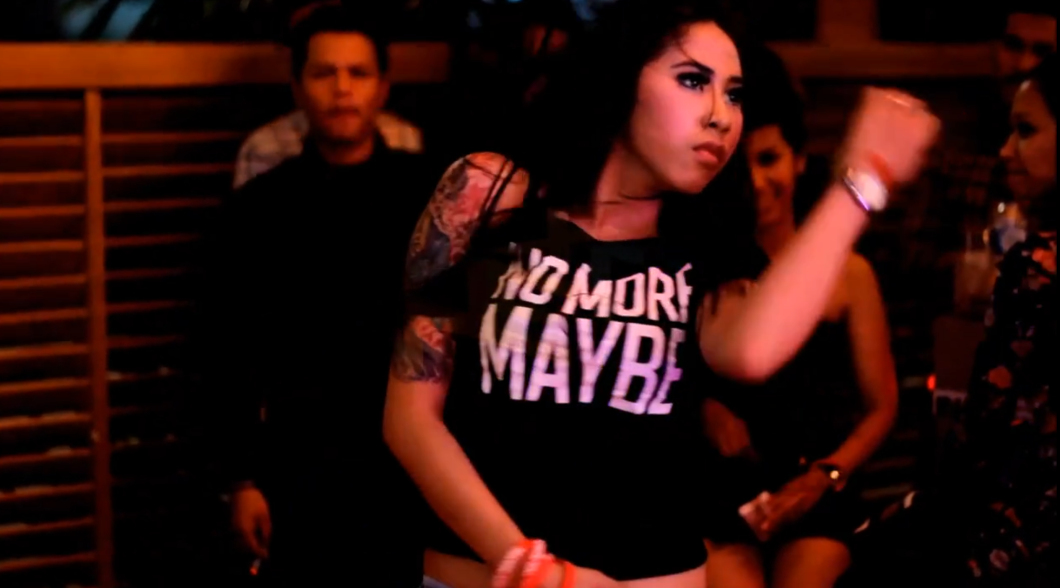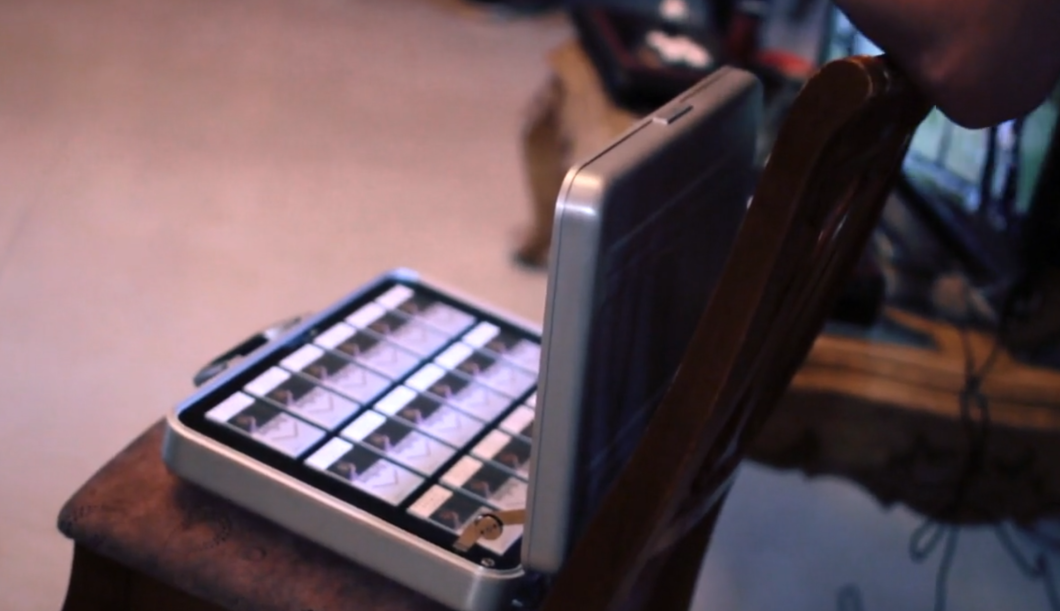Philip Morris International Uses Copyright Claims To Quiet Marlboro Critics Image courtesy of Campaign for Tobacco-Free Kids
Earlier this year, John Oliver thrust Philip Morris International — the New York-based cigarette giant that markets Marlboro and other brands in hundreds of countries outside the U.S. — into the spotlight for its questionable legal efforts to delay and block tobacco regulation around the globe. And this morning, the company used copyright claims to have videos posted by critics of Marlboro removed from the Internet.
The group Campaign for Tobacco-Free Kids has been highly critical of the “Be Marlboro” marketing campaign that PMI has been running in various countries since 2012. The ads tell young smokers to “Don’t Be A Maybe” and project a vibrant lifestyle full of partying and extreme sports while leaving out things like cancer, emphysema, and heart disease.
CTFK had compiled several Marlboro marketing videos with footage of Marlboro-sponsored parties that were part of this marketing. These clips were uploaded, without any editing, to video-sharing site Vimeo to show how Marlboro actively markets to the young-adult market.
But after the group sent out a press release notifying the media of its video collection, the clips vanished from Vimeo because of a copyright request from the Philip Morris office in Switzerland:
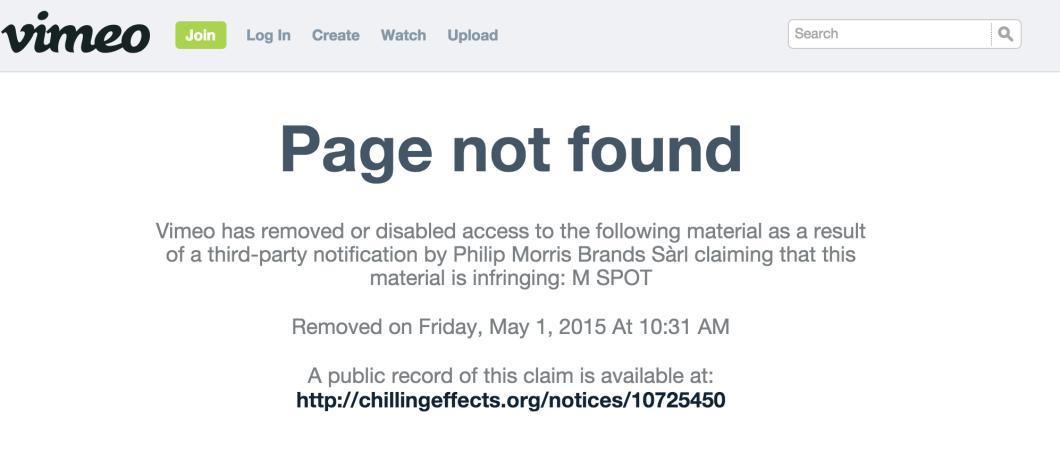
The available takedown details provide nothing more than the names of the videos removed from the site other than the titles of the deleted clips and PMI’s claim to ownership. We’ve reached out to PMI for further explanation but have not yet received a reply from the company.
“We want people to see these videos for the same reason Philip Morris International wants to take them down,” explains a spokesperson for the Campaign for Tobacco-Free Kids, “because they make it clear that the Be Marlboro ad campaign is targeting young people around the world. Philip Morris claims they don’t market to kids, but the Be Marlboro advertising and videos show otherwise. They use images and themes like sex, parties and risk that are sure to appeal to teens and entice them to become Marlboro smokers. It’s important for public officials around the world to see this marketing and take action to protect kids by banning the Be Marlboro campaign and others like it.”
While these particular videos are no longer available on Vimeo, we were able to view them in order to present them so that readers can decide whether or not they cross an ethical line.
“In 2012, Marlboro launched a new revolutionary campaign — ‘Don’t Be A Maybe; Be Marlboro!’ — which is aimed to inspire a young adult smoker into decision-making,” explains the voice-over on the clip produced by Philip Morris Slovakia for a pop-up “Red City” festival Marlboro put together there. “Only thanks to courage, it’s possible to make decisions.”
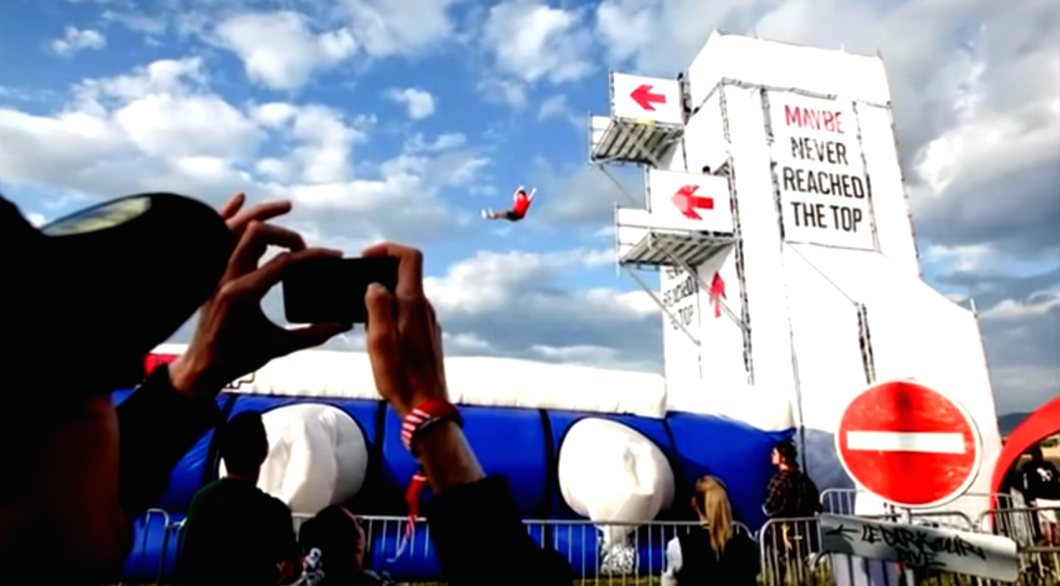
Philip Morris International says the goal of “Don’t Be A Maybe” is to “inspire a young adult smoker into decision-making.” Here we see someone jumping off a 10-meter tower, presumably rather than having to smoke a Marlboro.
“We tried to inspire and induce visitors to make a decision to experience something new at the festival,” continues the voice-over. “Ongoing activities through the day were presented in the spirit of the brand campaign and linked to the overall concept through music, dance, graffiti, and lifestyle.”
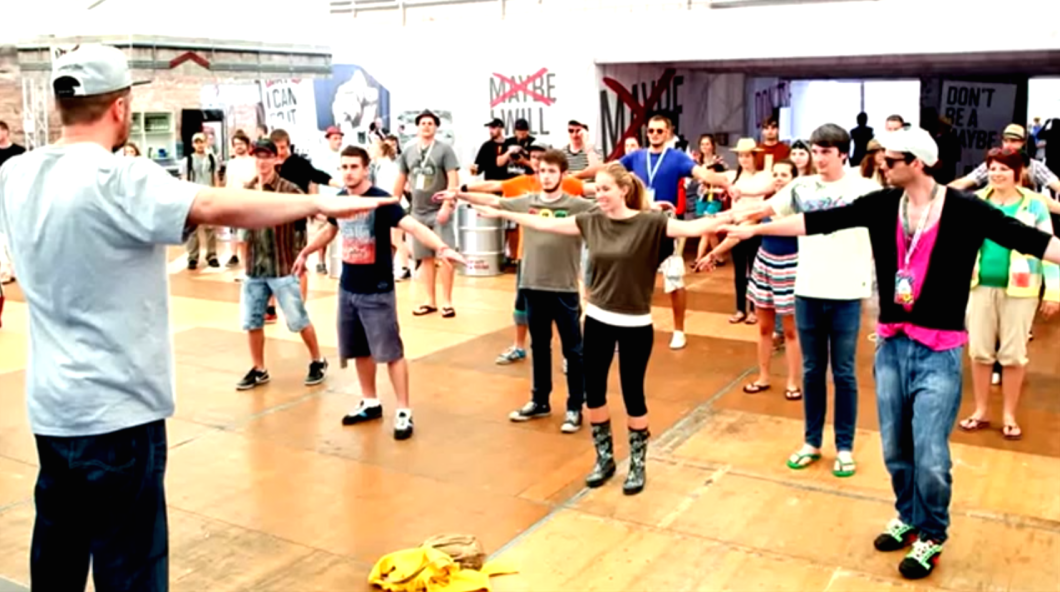
Marlboro wants to encourage young smokers to dance, which is good because they won’t be able to dance very much later in life if they’re still smoking.
There was also a video from a 2012 party in Moldova, complete with DJs wearing furry panda heads and a topless dancer.
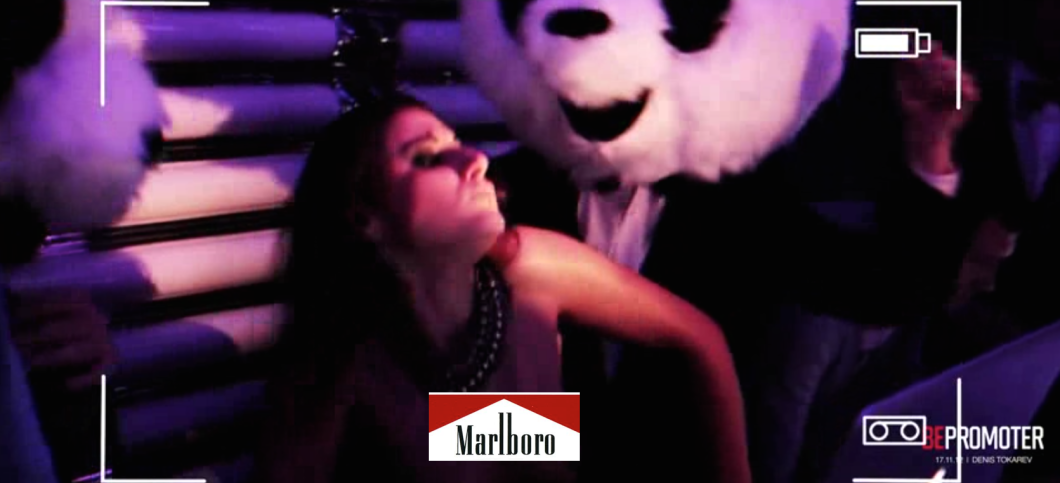
Several minutes of the Moldova video feature this topless dancer grinding on the panda-headed DJs. The Marlboro logo in the image above was inserted to cover her bare, pierced nipples.
In Indonesia, the partying may have been less explicit, but the Marlboro branding was not.
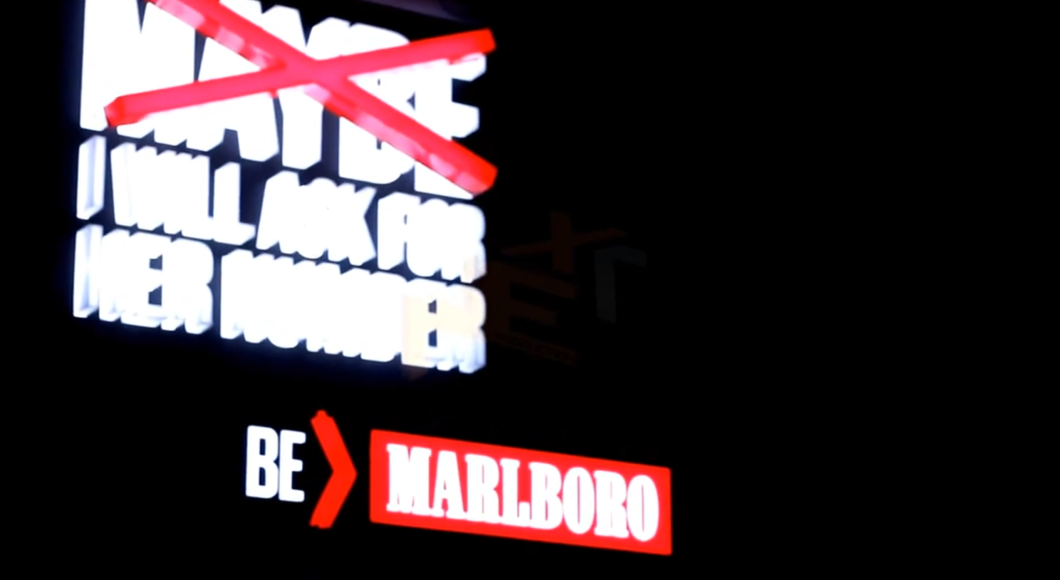
While this Marlboro poster tells men to boldly go and ask for a woman’s phone number, even though the only women shown attending this party were working there as models or dancers.
While the Indonesia Marlboro party was noticeably free of non-working female attendees, the one in Saudi Arabia was a strictly male-only event, and even more focused on pushing Marlboro cigarettes:
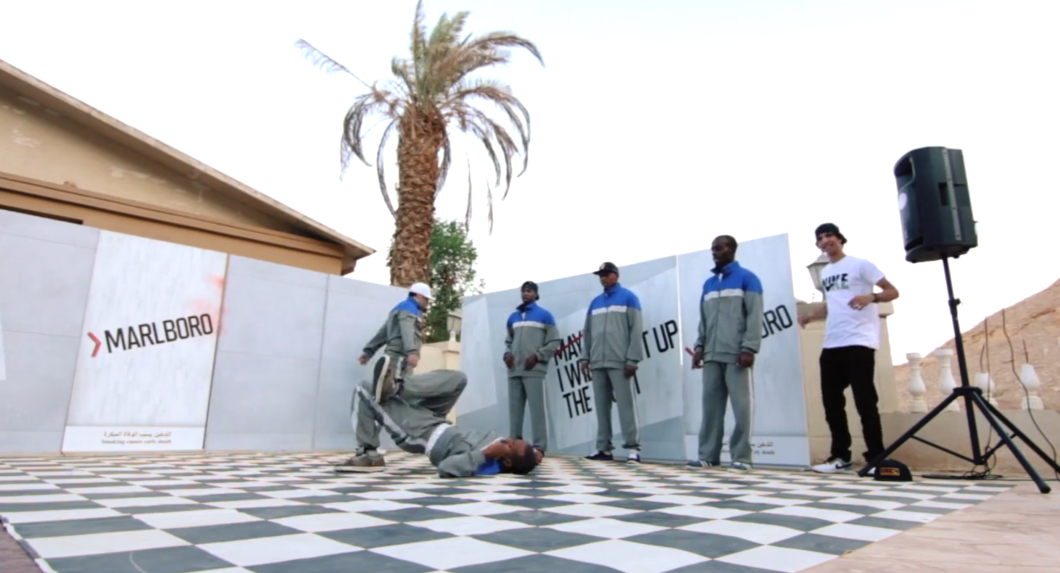
Interestingly, the Saudi Arabia video tells viewers that “Freedom doesn’t start with a maybe,” but glosses over the lack of freedom for women in Saudi Arabia (like the fact that none of them would be allowed to attend this party).
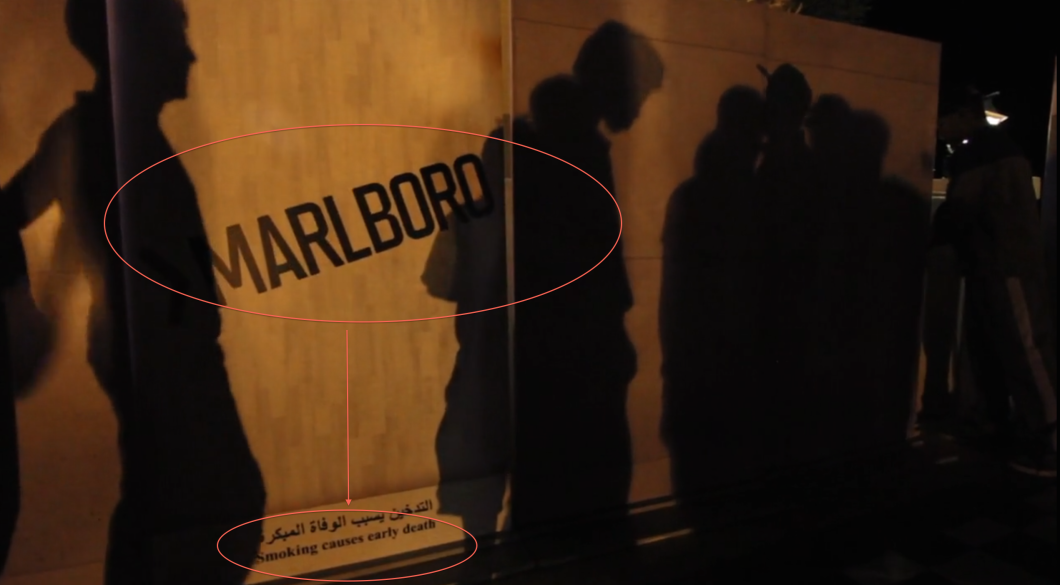
In all of the videos we watched, this was the first where we saw any kind of visible health warning, though you’d have to squint to see it.
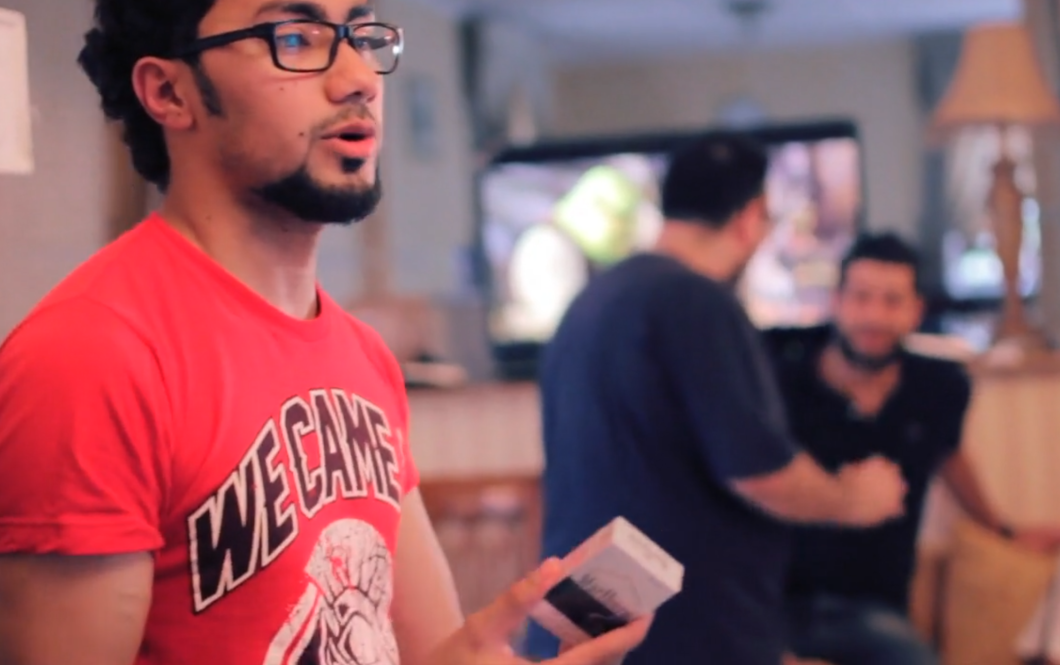
This is the guy who shows off that steel briefcase to talk up the cigarettes and distribute samples.
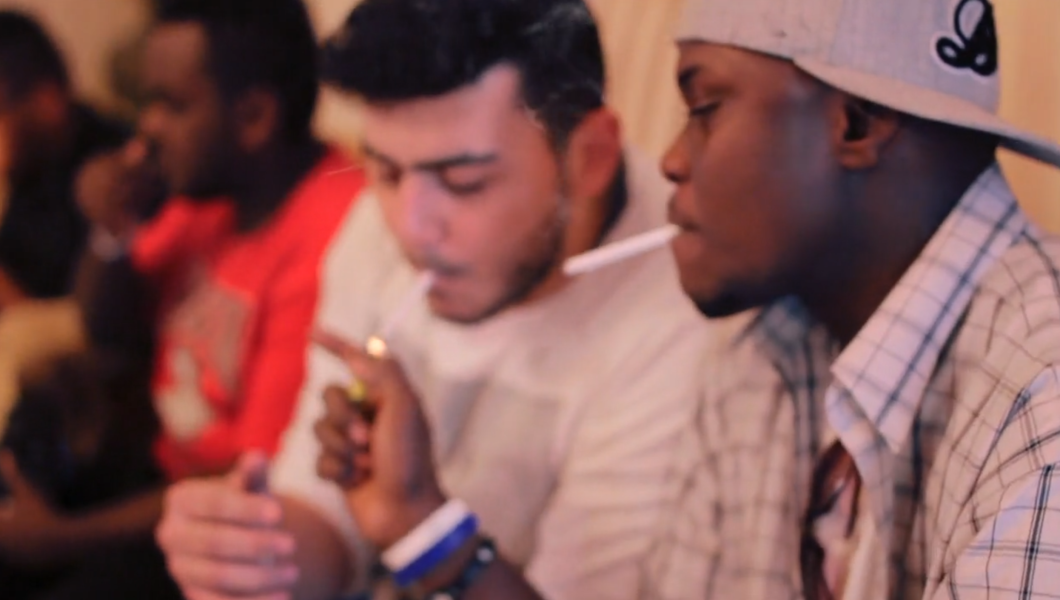
The video of the Saudi Marlboro party was the only one we saw where guests were actually shown smoking.
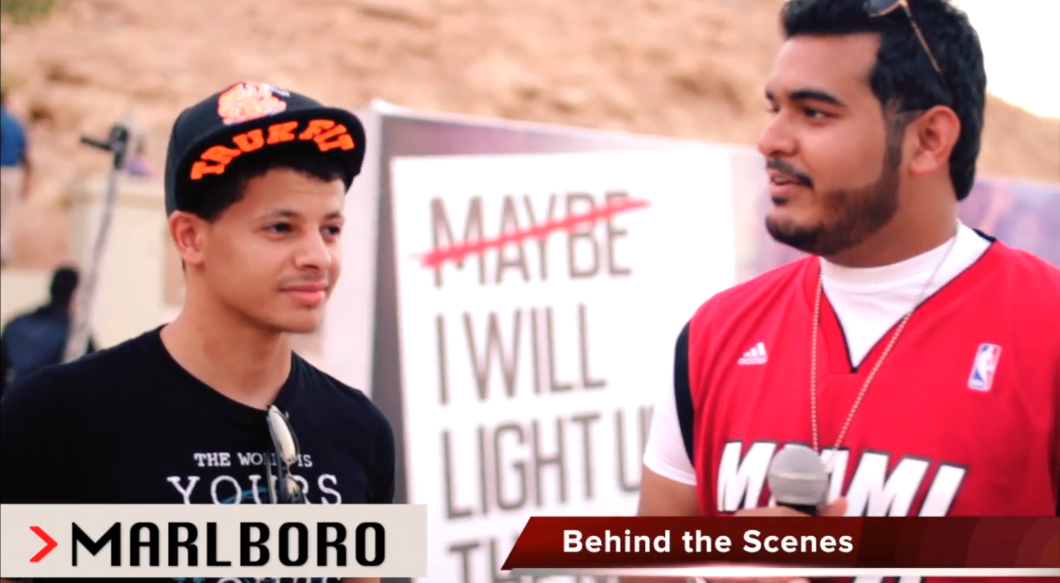
The video ends with “behind-the-scenes” footage of a host asking attendees to name the best cigarette brand. You’ll never guess what they say.
One could argue that these parties are not significantly different from events thrown every night in cities all around the world by alcohol, electronics, software, and food companies. The claim could also be made that party attendees don’t actually care about the sponsor or the branding message and just want to enjoy themselves. At the same time, one has to wonder why Marlboro is going through the cost and expense of both throwing these parties and hiring producers to record them, but doesn’t want them to be shared — without any subsequent edits or commentary — by a group critical of Marlboro’s motives.
We leave you with the original Last Week Tonight report that first put the Be Marlboro campaign in the national spotlight:
(All above party photographs are screen-grabs taken from four separate Philip Morris videos provided to Consumerist by Campaign for Tobacco-Free Kids)
Want more consumer news? Visit our parent organization, Consumer Reports, for the latest on scams, recalls, and other consumer issues.


